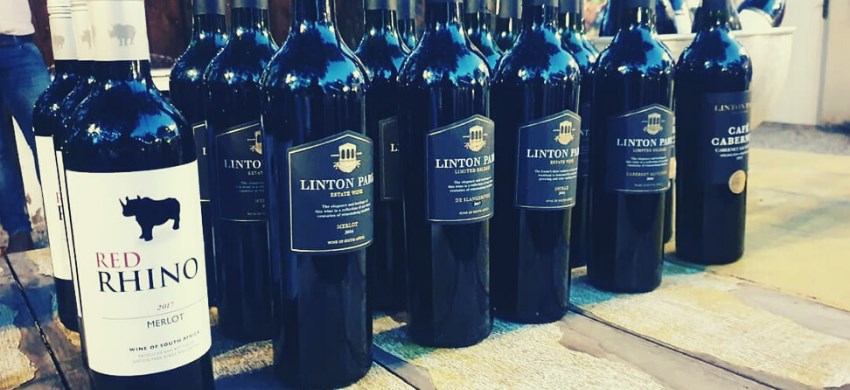A colourful label or a compelling story can help to sell wine in Russia. This is just one of the valuable lessons South African wine producers and exporters are learning as they begin to make inroads into the Russian market.
Exports of South African wines to Russia skyrocketed by 76% to three million litres between 2015 and 2016, when European Union sanctions against Russia were beginning to bite and the country’s wine importers looked to alternative suppliers.
“Russia’s population of 145 million people represents a unique opportunity for South African wine producers,” says Bethchen Zaayman of premium wine exporters Robinson & Sinclair. Zaayman has visited Russia twice in the past year and has been surprised and encouraged by Russian importers’ enthusiasm for South African wines.
While alcohol consumption is declining in Russia, wine is the exception, with the average household consuming 10 litres per year. According to research agency Euromonitor, wine consumption in Russia is soon expected to reach 1 billion litres per year.
In September last year, the Department of Trade, Industry and Competition (DTIC) – which is working to assist South Africa’s agricultural producers to find a market for their products in Russia – arranged for 35 South African exhibitors to attend WorldFood Moscow, Russia’s leading food and drink exhibition. Of the 35 South African exhibitors, 10 were wine producers and they were overwhelmed by the interest shown in South African wines.
There was particular interest in Chenin Blanc and Pinotage wines and, surprisingly, labels seemed to be very important.Wines with colourful labels and a traditional feel were most popular and the Rhino range produced by Linton Park Wines in Wellington caused a sensation because of the fact that the winery contributes a portion of its sales of the wine to rhino conservation in South Africa. Robinson & Sinclair received orders for two containers of Linton Park wines directly after the WorldFood Moscow show, and more orders have followed.

Prodexpo – a food and beverage exhibition that takes place in Moscow in February each year – provides another opportunity for South African wine producers and exporters to showcase the country’s wines. The show is timed to coincide with the buying period for the summer season – the highest period of wine consumption in Russia.
Prodexpo takes place over five days and those South African producers and exporters who attended the February 2020 show were astounded by the interest in their wines. This time the DTIC’s Export Marketing and Investment Assistance Scheme, which works to develop export markets for South African products and services, facilitated the attendance of the South African exhibitors.
At the show, Robinson & Sinclair launched a new project called The Wedge, which consists of a two-tier range of wines. The wines were very well received. Many of the buyers from large Russian supermarket groups like X5, Magnit, Metro, Lenta and Dixy attended the show and showed interest in the wines the company had on offer.
According to the South Africans who attended Prodexpo, language is a barrier to doing business in Russia and it is essential to engage the services of an English interpretor.
Another way for wine producers and exporters to enter the Russian market is to participate in the annual supermarket tenders. The major supermarkets issue tenders at least once per year, and sometimes twice per year. Typically the tenders are for large volumes (10 000 to 180 000 bottles) and usually for entry level wines. The tenders are very price-driven.
The tender system allows wine producers to introduce their wines to Russian supermarkets, but the process itself can be difficult and time consuming. All documentation (including certificates) must be translated into Russian and there is a complicated procedure for sending samples to Russia. Samples are generally sent to a holding company in Riga, Latvia (near the western border with Russia, within relatively close proximity to both Moscow and St Petersburg) and from there they are distributed into Russia. Similarly, Russia operates an elaborate electronic tracking and monitoring system for alcohol products and this system can also be frustrating for exporters who are not familiar with it. Fortunately, the South African embassy in Moscow is active and helpful and can assist South African exporters to come to grips with the intricacies of the Russian system.
The effort required to penetrate the Russian market should prove worthwhile for South African producers. According to a detailed report on Russian alcohol consumption that was released by global audit and consulting firm Deloitte CIS recently, wine is consumed by 59% of Russians, with 69% of women consuming it regularly.
The Deloitte CIS report tested the alcohol consumption patterns and attitudes of 1 600 people in eight federal districts, 46 regions and at least 250 population centres. It found that – contrary to the popular conception that Russians drink only vodka – beer is their most popular alcoholic choice (63%), followed by wine (59%), Cognac (45%), sparkling wine (41%), vodka (36%) and whiskey (25%). Encouragingly, it is the younger population (under 35) who tend to choose wine and beer over spirits.
The Russian market for wine is large and growing and importers are demonstrating an enthusiasm for South African wines that is very encouraging. With the welcome assistance of the government, the South African wine industry has a unique opportunity to offer its products to Russia and build a brand in this relatively untapped market.